-
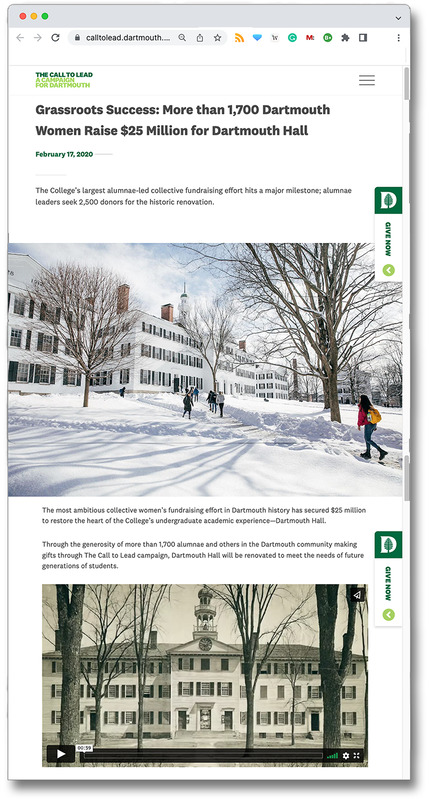
In an effort to restore and update the historic Dartmouth Hall, more than 1,700 Dartmouth alumnae raised $25 million for Dartmouth's Call to Lead Campaign. "Gifts ranged from $10 to $1 million and were received from members of every Dartmouth class from 1969 onward, including current undergraduates." February 17, 2020.
-
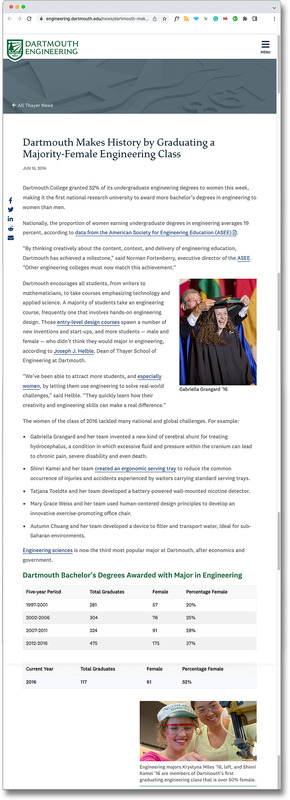
In 2016, for the first time in the school's history, the College "granted 52% of its undergraduate engineering degrees to women this week, making it the first national research university to award more bachelor's degrees in engineering to women than men."
-
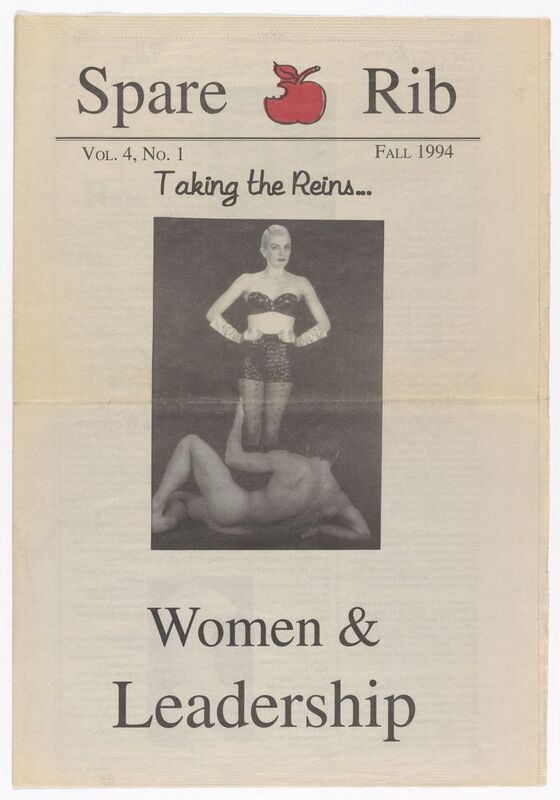
The 1990s at Dartmouth ushered in a new age of student publications focused on gender identity, sexuality, race, class, and feminism. One such publication, Spare Rib, described by its editors as "a manifestation of all that Dartmouth women have accomplished, the challenges that face us now, and the victories we hope to gain in the coming years," dedicated Volume 4, No. 1 to celebrating the progress women have made at Dartmouth since the beginning of coeducation and the culture of women leadership on campus.
-
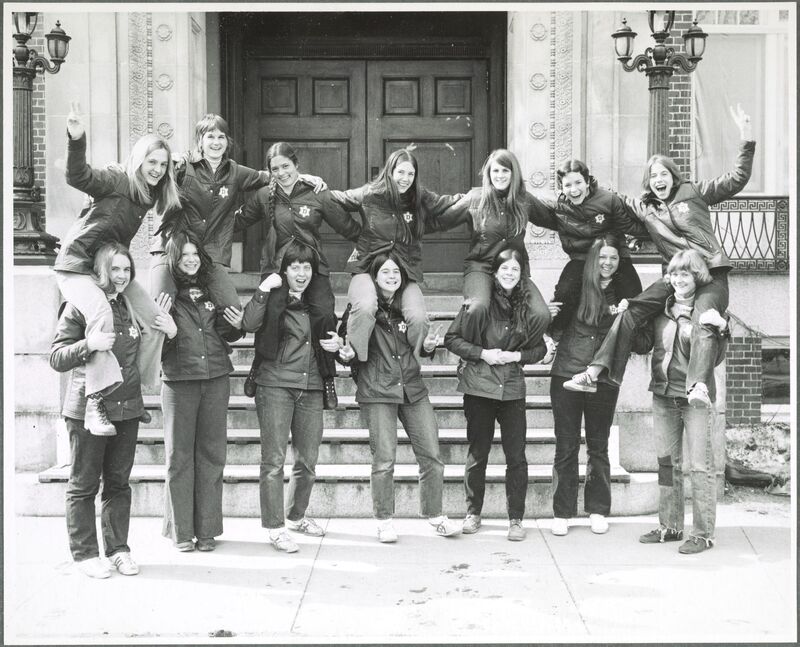
The 1974 Winter Carnival marked the beginning of a new era for women at Dartmouth. For 43 years prior, their participation in carnival events and activities was limited to being guests or dates of Dartmouth men. The Queen of Snows competition, a contest based purely on beauty was officially put to rest with the onset of coeducation. Seen here, the women’s carnival ski team, first of its kind, beat out 9 other teams to win carnival. In the seven years following coeducation, the women's athletics programs grew to include 12 varsity sports
-
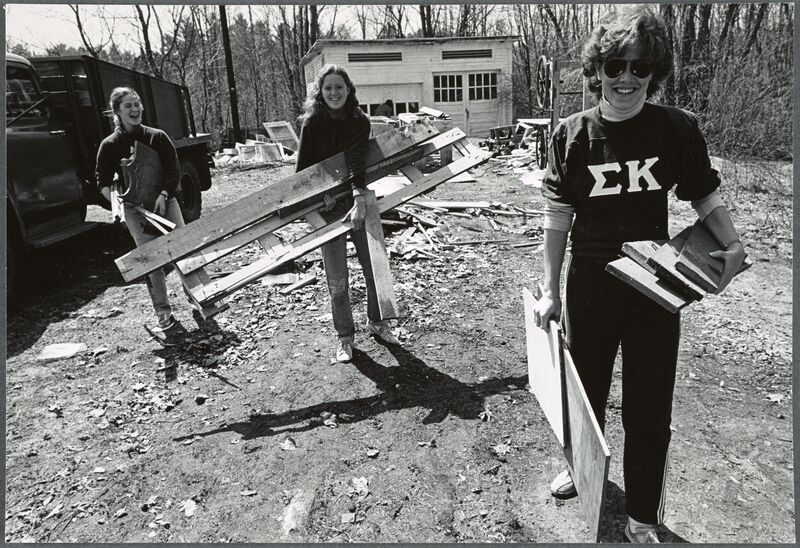
The Dartmouth chapter of the Sigma Kappa sorority was founded in 1977. Here members volunteer at the Opportunity Center in Canaan, NH. After coeducation but before the organization of Sigma Kappa, five fraternity houses (Foley House, Phi Tau, Phi Sigma Psi, and Alpha Theta) opened their membership to women. Today, there are eight active sororities on campus and three gender-inclusive houses.
-
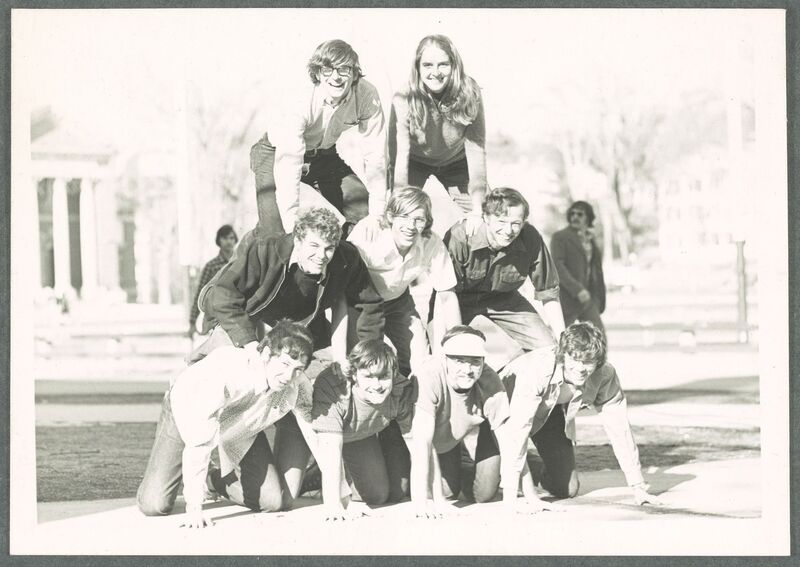
Elise Erler '76, Vice President of the Dartmouth Outing Club was the first woman elected to serve on the directorate.
-
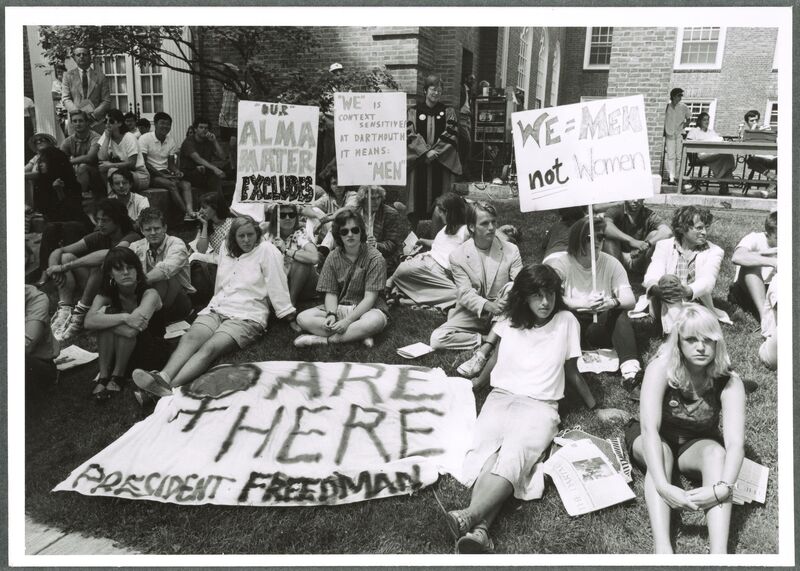
Students gather to protest the lyrics of Dartmouth's alma mater, "Men of Dartmouth." The song was criticized for excluding women from its lyrics and not accurately representing the Dartmouth community.
-
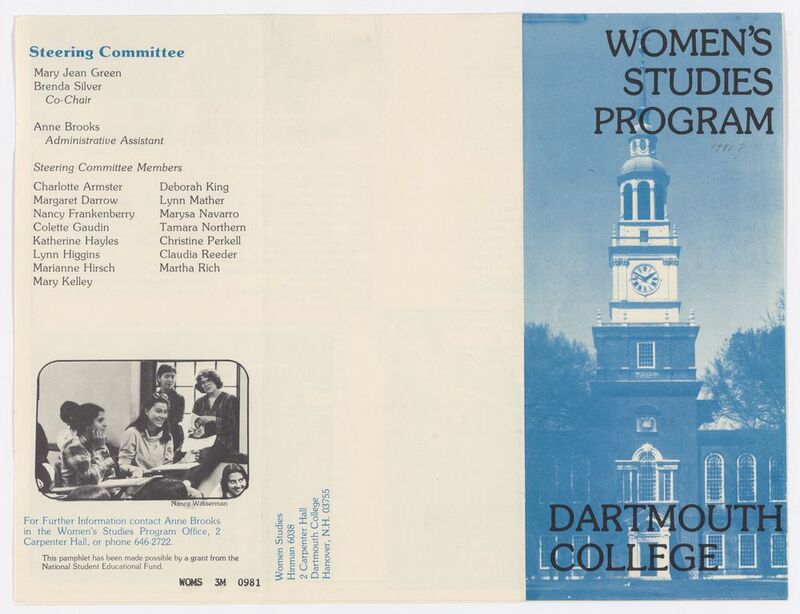
In 1978, by vote of the faculty, the Women's Studies Program was approved and the first course, Women Studies I: Introduction to Women Studies, was taught Spring of 1979. The program was "the first such program of any of the previously all-male Ivy League colleges." Today, The Women, Gender, and Sexuality Studies Program offers over 85 courses.
-
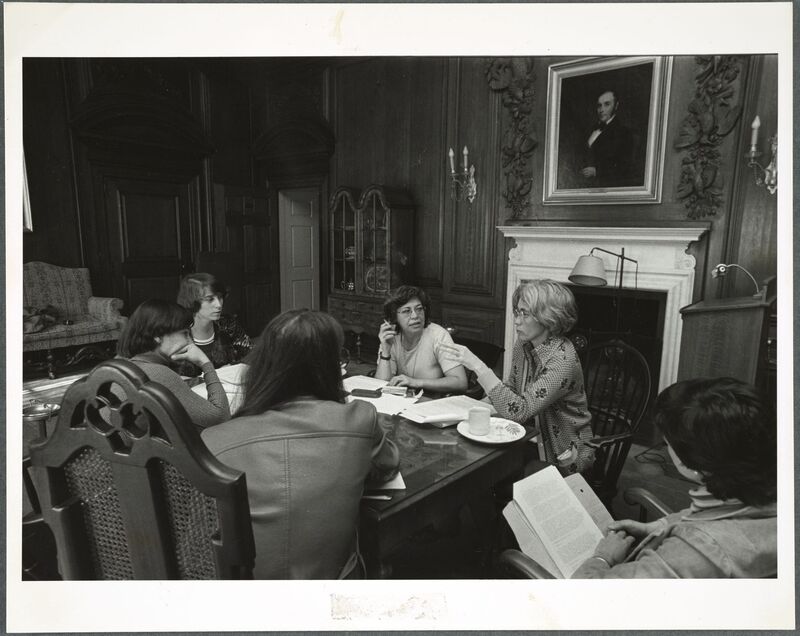
Lynn Higgens, Maryssa Navarro (center), Joan Smith and others meet to discuss the institution of the Women's Studies Program









